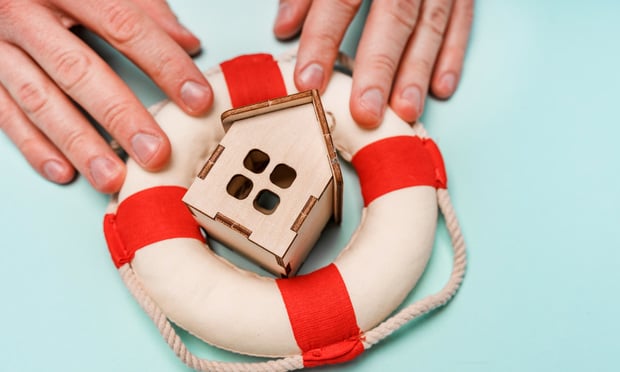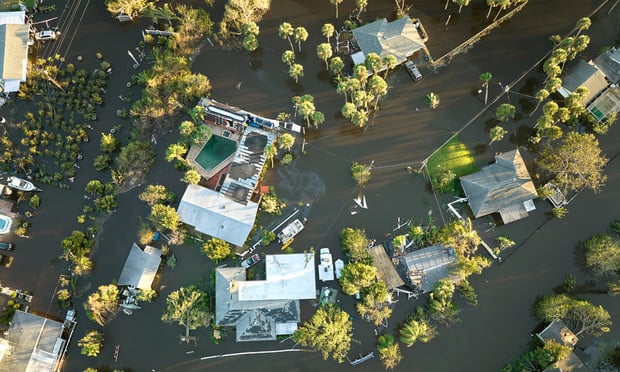Editor's Note: This is the first of a planned series of monthly columns by Lynne McChristian, the Florida representative for the Insurance Information Institute. For more than 40 years, the mission of the Insurance Information Institute has been to improve public understanding of insurance — what it does and how it works. The Institute does not lobby. Its central function is to provide accurate and timely information about insurance subjects. In keeping with her organization's mission, McChristian will discuss current industry issues, topics, rumors, and public misconceptions (“They Say, Hearsay”), and offer responses and tactics to address them (“We Say”).
They Say, Hearsay
“I've been paying insurance premiums for 18 years, with no claims. That means my payments have been pure profit for my insurance company.”
We Say
Current economic conditions notwithstanding, it has always been challenging to make people feel good about paying a fee (any fee) if they think they received nothing in return. Think about the service agreement you purchased for a major appliance. Sure, it brought peace of mind at the time to know a repairman was at your beck and call, but if the thing never broke… . Claim adjusters are also at the insured's beck and call, but if there are no claims, those lucky policyholders may forget to feel lucky.
We need to come up with ways to remind policyholders that the promise of protection has value. This is more than the annual “thank you for your business” letter that comes at renewal time. Reminders about what policyholders get for their premium payments when they don't need to make a claim can take many forms — good-driver discounts, longevity credits, or educational resources to reinforce the behaviors that reduce claims. In addition to providing a service to our clients, this also is a way to put us on a path to restoring the industry's reputation in Florida.
The Insurance Information Institute's national poll on industry favorability, which was conducted last year, showed Americans are dissatisfied with several business markets. There were double-digit declines in favorability toward seven industries, including homeowners' and auto insurers (see charts). Declines in favorability ranged from 15 points for the banking industry to three points for life insurers. Favorable attitudes toward auto and homeowners' insurers dropped 12 points from 2007 to 2008.
Historically (and thankfully), being in and out of favor is not a rollercoaster ride for insurers, but it is a somewhat bumpy road. In the past 25 years, we weathered a steady decline in positive attitudes toward insurers. That began to change in 1991, and favorability held at about 50 percent between 1998 and 2007. In 2008, we saw a drop of a few percentage points.
Overall, the insurance industry's reputation has fared well — not as high as some, but far better than others. I am guessing favorability in Florida would be slightly lower, given the public perception and the politicized environment of the past several years. The reality is that industry “approval ratings” are in the 45 to 48 percent range, and the perceptions are off base.
Satisfied customers are generally those who have had a claim resolved properly and promptly. The challenge remains in helping those who never had a claim feel satisfied as well. The promise of protection that comes with purchasing insurance has value. Demonstrating that value to the lucky persons who are claim-free is worthwhile and, in fact, necessary.
One place to start is by doing a better job of telling our success stories. Insurers often have ways to shine a spotlight on good customer service stories within their organizations. This, of course, is a great learning tool for employees. But we may not be as effective telling those same stories to customers. These good-news stories need help getting out into the world; the bad-news stories get out all by themselves. Bad news sells and, worse, it sticks. Getting good news out and helping it take hold is a purposeful, do-it-yourself model that goes beyond advertising and marketing. It must be personal.
Educating your policyholders about how insurance works will help them appreciate how profits and reserves work to pay claims. It is easy to forget that the avenue of shared risk is a two-way street — with hazards along the way — when you've had a smooth, long ride.
Lynne McChristian is the Florida representative for the Insurance Information Institute. She may be contacted at 813-480-6446, [email protected]. Also, see www.InsuringFlorida.org for her insurance blog “Straight Talk.”
Want to continue reading?
Become a Free PropertyCasualty360 Digital Reader
Your access to unlimited PropertyCasualty360 content isn’t changing.
Once you are an ALM digital member, you’ll receive:
- Breaking insurance news and analysis, on-site and via our newsletters and custom alerts
- Weekly Insurance Speak podcast featuring exclusive interviews with industry leaders
- Educational webcasts, white papers, and ebooks from industry thought leaders
- Critical converage of the employee benefits and financial advisory markets on our other ALM sites, BenefitsPRO and ThinkAdvisor
Already have an account? Sign In Now
© 2024 ALM Global, LLC, All Rights Reserved. Request academic re-use from www.copyright.com. All other uses, submit a request to [email protected]. For more information visit Asset & Logo Licensing.








